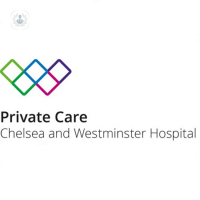Aviation medicine
Dr Gary Davies - Pulmonology & respiratory medicine
Created on: 06-21-2023
Updated on: 07-19-2023
Edited by: Karolyn Judge
What is aviation medicine?
Aviation medicine is a field of preventative or occupational medicine. Pilots, cabin crews and astronauts are patients, and it is also concerned with the health and safety of passengers. It is an essential component of aviation safety as the discipline applies medical knowledge to the human factors of aviation.

Who practises aviation medicine?
There are two types of aviation medicine practitioners: military practitioners and civilian practitioners.
A military practitioner can be referred to as a flight surgeon, and a civilian practitioner an aviation medical examiner. A significant difference between military and civilian flight doctors, are that military flight surgeons are required to log flight hours.
What's involved in an aviation medical?
There are different types of medicals for different aviation roles. They result in people being declared fit to fly.
Pilots and air traffic controllers medical - UK CAA medical
- Physical examination
- ECG
- Spirometry
- Audiogram
- Urine test
- Blood tests for haemoglobin and cholesterol - this is a finger prick test, and you are able to eat beforehand
- Drug and alcohol testing (pilots only)
- Full optometry assessment, including colour vision assessments
- Application forms on the UK CAA Cellma system are checked, and any medical issues arising from medical will be recorded and become part of the CAA file.
The patient will be issued with their medical certificate if the doctor finds you fit.
Do cabin crew require an aviation medical?
Yes. Here is what’s involved in this:
Cabin crew medical assessment
Firstly, you need to complete a medical form giving details of your medical history, which includes any current or previous conditions giving details of your medical history, any current or previous conditions and past or planned surgeries. It's important that you complete this as accurately as possible, as if anything that needs to be investigated further could delay you receiving your medical report and prevent a fit to fly declaration.
The assessment includes:
- Posture, movement and gait (manner of walking) observation
- A urine and blood pressure test
- Pulse taken
- Height, weight and body mass index measured
- A hearing test, and clinical ear test
- An eyesight test, and clinical eye test
- Teeth, gum, mouth and throat exam
- Heart, lungs and neurological system exam
- Abdomen exam, including a check for hernias
You may have other tests based on your medical history.
Once your medical is successfully completed, you will receive a report and a copy that you can pass on to your employer.

How often is an aviation medical required for pilots?
An aviation medical is required yearly. A Class 1 medical certificate is valid for 12 months. If you’re 40 or over and carry out single pilot commercial air transport operations carrying passengers, or you’re over 60, you need a medical every 6 months.
How often do cabin crew require a medical?
Cabin crew in the UK and Europe must have a medical when they first begin their role. This assessment will then be valid for up to 5 years.
Once the medical certificate expires, you must book a renewal medical as soon as you can if you want to continue flying. You are not able to operate as cabin crew until it’s renewed.


